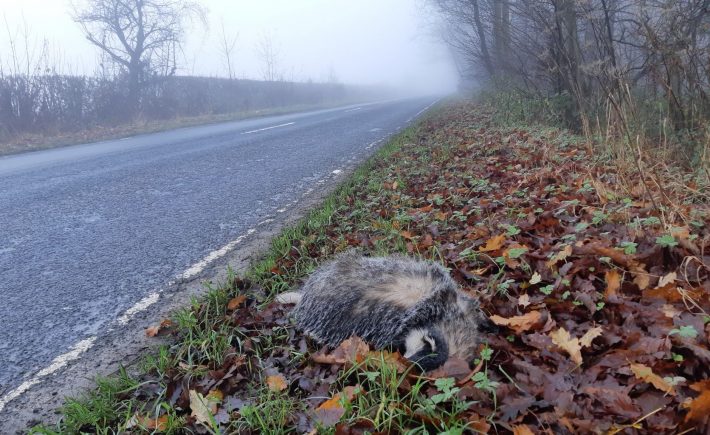Lockdowns revealed the British wildlife most at risk of becoming roadkill
Researchers find that badgers, foxes and pheasants benefitted the most from reduced traffic during UK lockdowns. The findings are presented in the Journal of Animal Ecology.

Scientists have used UK-wide lockdowns as a unique opportunity to observe wildlife with the absence of traffic. Their findings shedding light on what characteristics and traits make iconic British species – like badgers and pheasants – more likely to be involved in collisions with vehicles.
Researchers at The Road Lab, based at Cardiff University, used data of roadkill records to assess the 19 wildlife species most frequently involved in vehicular collisions, to see which exhibited changes in road mortality during two major lockdown periods (March- May 2020 and December 2020 – March 2021).
By comparing lockdown rates to the same time periods in previous years (2014-2019), they were able to identify the traits that put species at higher risk of becoming roadkill.
“This study seized the unique opportunity to see what happens when this road-dominated landscape fell silent.
Sarah Raymond, research student at Cardiff University’s School of Biosciences who led the research, said: “During lockdowns, we found that there were fewer records of nocturnal mammals, animals that visit urban environments, mammals with greater brain mass and birds with longer flight initiation distances.
“Species that have several of these traits – such as badgers, foxes and pheasants – are more likely to be hit by cars and have the highest mortality rate in normal traffic levels. These species therefore appear to have benefited from the lockdowns the most, and so suffer most during ‘normal’ times.”
The researchers discovered that across all species, wildlife-vehicle collisions were 80% lower during the lockdowns, which they say is not surprising given the dramatic decrease in traffic. The data gathered during this unique situation can help inform wildlife conservation in a road-dominated landscape.
“The UK is a country where roads cover 398,359km in length and there are 39.2 million car owners.” added Sarah. “This study seized the unique opportunity to see what happens when this road-dominated landscape fell silent. We revealed the impact that these vehicles are having on our much-loved British wildlife species, not only that, but that the risks are trait-based.
The researchers say that an understanding of what makes certain species more vulnerable to road collisions can help to guide conservation efforts and ultimately protect British Wildlife.
Read the full study here:
, , , , & (2023). The impact of the COVID-19 lockdowns on wildlife–vehicle collisions in the UK. Journal of Animal Ecology, 00, 1– 12. https://doi.org/10.1111/1365-2656.13913
Like what we stand for?
Support our mission and help develop the next generation of ecologists by donating to the British Ecological Society.